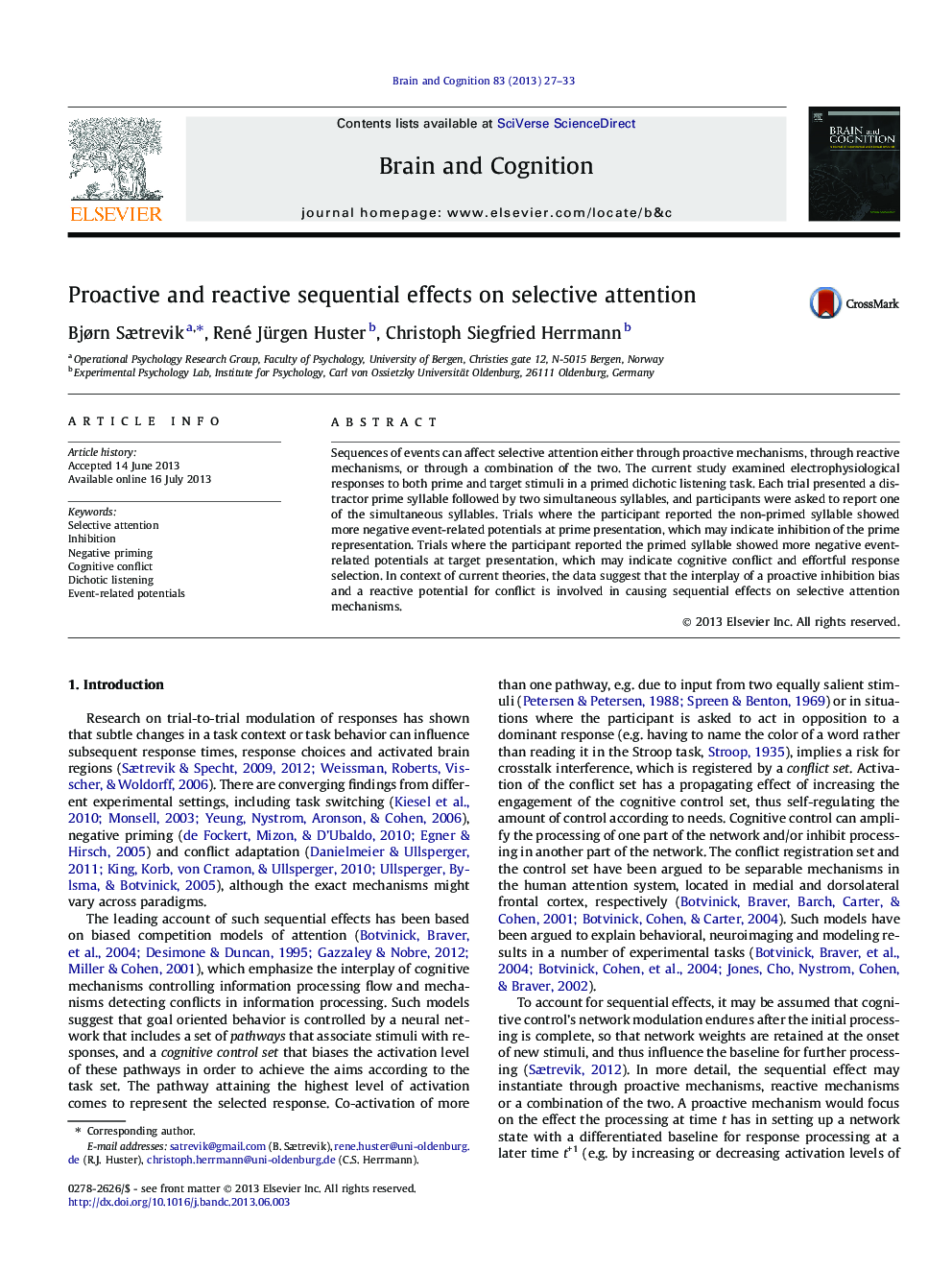| Article ID | Journal | Published Year | Pages | File Type |
|---|---|---|---|---|
| 923992 | Brain and Cognition | 2013 | 7 Pages |
•ERPs were collected for prime and target windows in a primed dichotic listening task.•Ignoring a syllable throughout the trial increased prime window negativity.•Changing from ignoring to attending a syllable increased target window negativity.•Prime processing inhibits the prime representation, causing a bias for target processing.•Target processing varies in conflict according to whether the bias is followed.
Sequences of events can affect selective attention either through proactive mechanisms, through reactive mechanisms, or through a combination of the two. The current study examined electrophysiological responses to both prime and target stimuli in a primed dichotic listening task. Each trial presented a distractor prime syllable followed by two simultaneous syllables, and participants were asked to report one of the simultaneous syllables. Trials where the participant reported the non-primed syllable showed more negative event-related potentials at prime presentation, which may indicate inhibition of the prime representation. Trials where the participant reported the primed syllable showed more negative event-related potentials at target presentation, which may indicate cognitive conflict and effortful response selection. In context of current theories, the data suggest that the interplay of a proactive inhibition bias and a reactive potential for conflict is involved in causing sequential effects on selective attention mechanisms.
